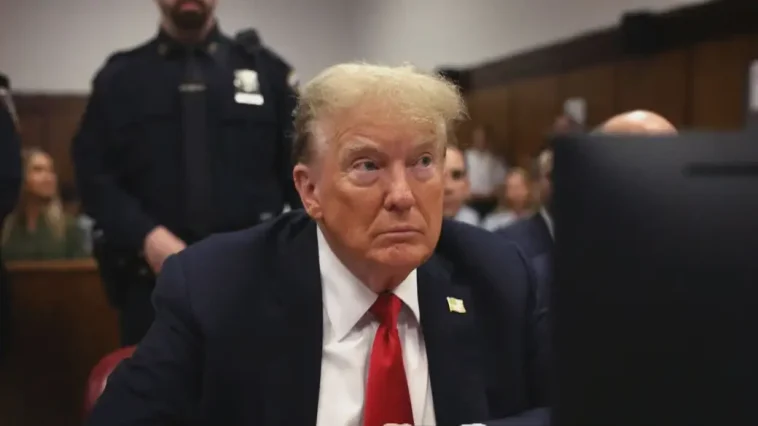By our correspond
The United States Supreme Court has sentenced the country’s President-elect, Donald Trump over hush-money payments made to an adult film actress. But he will avoid penalties for his conviction.
Judge Juan Merchan, who sentenced Trump to an “unconditional discharge” January 10, rejected an attempt by his legal team to delay sentencing before the Republican leader’s inauguration on January 20.
The decision means that Trump’s conviction will appear on his permanent record, but he does not face imprisonment, a fine, or probation – leaving him unencumbered to enter the White House.
Trump, who previously served as president from 2017 to 2021, was found guilty in late May on 34 counts of falsifying business documents related to hush-money payments made to Stormy Daniels, among other things.
The US president-elect had denied any wrongdoing and said that he planned to appeal his conviction.
Appearing virtually at the sentencing hearing, Trump said his criminal trial and conviction had “been a very terrible experience” and insisted that he committed no crime.
“It’s been a political witch-hunt,” Trump said before the judge issued his decision. “It was done to damage my reputation so I would lose the election and obviously that didn’t work.”
Prosecutors in the New York case had argued that the hush-money payments aimed to conceal allegations of a sexual relationship with Daniels that could have been politically damaging.
See also 2027: President Tinubu’s anti people’s policies healthy for return of PDP — Utaan National Chairmanship aspirant
The payments were made ahead of the 2016 US presidential election, which saw Trump defeat Democrat Hillary Clinton to win the White House.
Trump, who pleaded not guilty in the case, has denied any sexual relationship took place.
Prosecutors had argued: “it was important that Donald Trump was held responsible.
“The judge himself said this was a unique and difficult case, but in the end, he decided that the sentence had to be an unconditional discharge.”
Under New York’s penal code, a court can sentence a defendant to an unconditional discharge if it “is of the opinion that no proper purpose would be served by imposing any condition upon the defendant’s release.”
Earlier, Trump’s lawyers had asked the Supreme Court to delay the sentencing “to prevent grave injustice and harm to the institution of the Presidency and the operations of the federal government.”
They argued that a ruling last year by the top court that grants presidents broad immunity from criminal prosecution means that some of the evidence should not have been presented in the case.
But a majority of the justices on the Supreme Court said in a decision that the “alleged evidentiary violations” at Trump’s state-court trial “can be addressed in the ordinary course on appeal.”
They also said “the burden that sentencing will impose” on Trump’s responsibilities “is relatively insubstantial in light of the trial court’s stated intent to impose a sentence of ‘unconditional discharge’ after a brief virtual hearing.”
Trump’s legal team is expected to appeal his conviction.
Now that he has been sentenced, Trump is free to pursue the appeal, a process that could take years and play out while he is serving his four-year term as president.
“Today’s event was a despicable charade, and now that it is over, we will appeal this Hoax, which has no merit, and restore the trust of Americans in our once great System of Justice,” Trump wrote on his Truth Social platform after his sentencing.
The United States Supreme Court has sentenced the country’s President-elect, Dona






